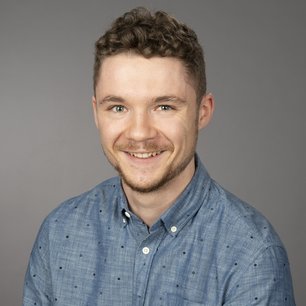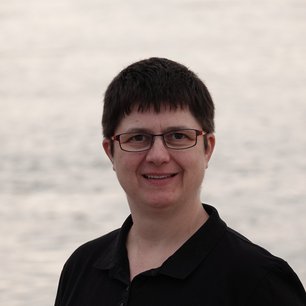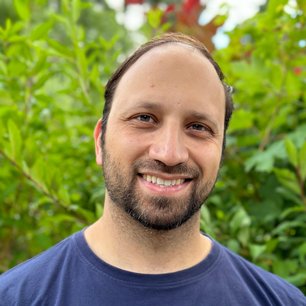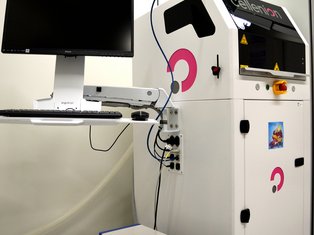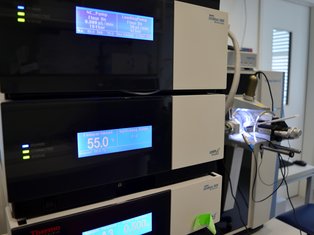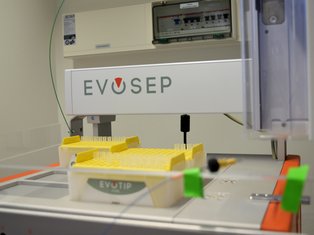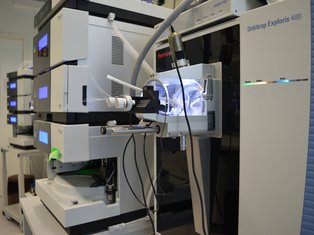Immunoproteomics Division
Prof. Dr. Stefan Tenzer
Defining biomarkers and neoantigen targets for individualized immunotherapies
OUR RESEARCH
Why it matters
The identification of tumor-specific neoantigens is a highly promising strategy to develop and improve personalized cancer immunotherapies leveraging T-cell mediated recognition and elimination of tumor cells. T-cells differentiate between self and non-self-cells by specifically recognizing peptides bound to the major histocompatibility complex (MHC), which define the MHC ligandome. Mass spectrometry-based immunopeptidomics enables the detailed characterization of the MHC ligandome, including unique tumor antigens. This information enables the design of personalized immunotherapies tailored to specifically target the patient's cancer cells, thus potentially enhancing treatment efficacy and reducing adverse effects.
TENZER LAB
Lab focus
We focus on the development, optimization and application of mass spectrometry (MS)-based workflows for quantitative immunoproteomics to facilitate a detailed understanding of the interplay between tumor antigenicity, tumor microenvironment and the anti-tumor immune response. Currently, the research group harbours several high-resolution mass spectrometry instrument platforms, including three timsTOF Pro-2, one timsTOF SCP (Bruker) and two Orbitraps Exploris 480 (Thermo Scientific). With these high-performance instruments, the Tenzer research group investigates the contribution of proteases involved in MHC-I-restricted antigen processing and develops high sensitivity methods and workflows for the in-depth characterization of the immunopeptidome. This will enable high-throughput immuno-phenotyping of quantity-limited clinical samples to define biomarkers and neoantigen targets for individualized immunotherapies.
Head of Division Immunoproteomics
Prof. Dr. Stefan Tenzer
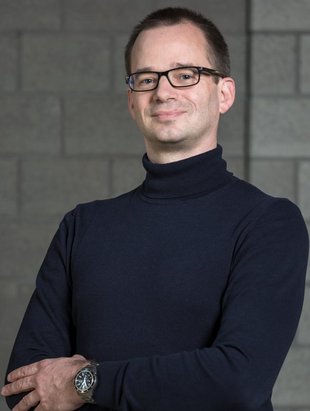 DKFZ
DKFZ
[since 2021] Head of Division, HI-TRON Mainz
[since 2021] W3 Professor for Immunoproteomics Institute for Immunology, University Medical Center Mainz
[2016 – 2021] W2 Professor for Quantitative Proteomics, Institute for Immunology, University Medical Center Mainz
[since 2020] Coordinator of the “DIASyM” Research Core for Mass Spectrometry in Systems Medicine
[since 2012] Head of Proteomics and Transcriptomics Unit (ProTic) of the Forschungszentrum translationale Neurowissenschaften (FTN), Mainz
[since 2009] Head of Core Facility for Mass Spectrometry and Protein Biochemistry, Forschungszentrum für Immuntherapie (FZI), University of Mainz
[since 2005] Group Leader for Antigen Processing and Mass Spectrometry at the Institute for Immunology
Mainz (UCT Mainz), Germany
[2005 – 2008] Head of the Core Facility for Mass Spectrometry and Protein Biochemistry of the Immunology Cluster of Excellence "Immunointervention" at the Johannes Gutenberg-University Mainz
[2005] Ph.D. Institute of Cell Biology, Department of Immunology
[since 2021] Vice President, Deutsche Gesellschaft für Proteomforschung
[2021 – 2022] Speaker of the BMBF Initiative MSCORESYS
[since 2020] Member of the Executive Committee European Proteomics Association (EuPA)
[2020 – 2021] Vice Speaker of the BMBF Initiative MSCORESYS
[since 2019] Editorial Board Member, Scientific Reports
[2019 – 2021] 2nd Vice President, Deutsche Gesellschaft für Proteomforschung
[since 2018] Editor of HUPO-PSI Quality Control Working Group
[2011] NMFZ Forschungspreis
[2007] Boehringer Ingelheim Forschungspreis
[1997] Fulbright-Travel Grant
Universitätsmedizin Mainz
Geb. 308A, 2./3.OG
Langenbeckstr. 1
55131 Mainz
Team
Dr. Yannic Chen
Postdoc
Julian Beyrle
PhD Student
Anke Ries
Technician
Dr. Mohammad Abukhalaf
Postdoc
Selected publications
- Sinitcyn P, Hamzeiy H, Salinas Soto F, Itzhak D, McCarthy F, Wichmann C, Steger M, Ohmayer U, Distler U, Kaspar-Schoenefeld S, Prianichnikov N, Yılmaz Ş, Rudolph JD, Tenzer S, Perez-Riverol Y, Nagaraj N, Humphrey SJ, Cox J. MaxDIA enables library-based and library-free data-independent acquisition proteomics. Nat Biotechnology. 2021;39(12):1563-1573
- Navarro P, Kuharev J, Gillet LC, Bernhardt OM, MacLean B, Röst HL, Tate SA, Tsou CC, Reiter L, Distler U, Rosenberger G, Perez-Riverol Y, Nesvizhskii AI, Aebersold R, Tenzer S. 2016. A multicenter study benchmarks software tools for label-free proteome quantification. Nat Biotechnology. 34(11):1130-1136
- Distler U, Kuharev J, Navarro P, Tenzer S. Label-free quantification in ion mobility-enhanced data-independent acquisition proteomics. Nat Protocols. 2016; 11(4):795-812
- Distler U, Kuharev J, Navarro P, Levin Y, Schild H, Tenzer S. Drift time-specific collision energies enable deep-coverage data-independent acquisition proteomics. Nature Methods. 2014; 11(2):167-70
- Tenzer S*, Docter D, Kuharev J, Musyanovych A, Fetz V, Hecht R, Schlenk F, Fischer D, Kiouptsi K, Reinhardt C, Landfester K, Schild H, Maskos M, Knauer SK, Stauber RH*. Rapid formation of plasma protein corona critically affects nanoparticle pathophysiology. Nature Nanotechnology. 2013; 8(10):772-81. (*corresponding authors)
- Adamopoulou E, Tenzer S, Hillen N, Klug P, Rota IA, Tietz S, Gebhardt M, Stevanovic S, Schild H, Tolosa E, Melms A, Stoeckle C. Exploring the MHC-peptide matrix of central tolerance in the human thymus. Nature Communications. 2013; 4 (1):2039
- Günther C, Martini E, Wittkopf N, Amann K, Weigmann B, Neumann H, Waldner MJ, Hedrick SM, Tenzer S, Neurath MF, Becker C. Caspase-8 regulates TNF-α-induced epithelial necroptosis and terminal ileitis. Nature. 2011; 477(7364):335-9
- Tenzer S, Docter D, Rosfa S, Wlodarski A, Kuharev J, Rekik A, Knauer SK, Bantz C, Nawroth T, Bier C, Sirirattanapan J, Mann W, Treuel L, Zellner R, Maskos M, Schild H, Stauber RH. Nanoparticle Size Is a Critical Physicochemical Determinant of the Human Blood Plasma Corona: A Comprehensive Quantitative Proteomic Analysis. ACS Nano.2011; 5(9):7155-67
- Tenzer S, Wee E, Burgevin A, Stewart-Jones G, Friis L, Lamberth K, Chang CH, Harndahl M, Weimershaus M, Gerstoft J, Akkad N, Klenerman P, Fugger L, Jones EY, McMichael AJ, Buus S, Schild H, van Endert P, Iversen AK. Antigen processing influences HIV-specific cytotoxic T lymphocyte immunodominance. Nature Immunology. 2009; 10(6):636-46
- Reineke J*, Tenzer S*, Rupnik M, Koschinski A, Hasselmayer O, Schrattenholz A, Schild H, von Eichel-Streiber C. Autocatalytic cleavage of Clostridium difficile toxin B. Nature. 2007; 446(7134):415-9. (*contributed equally)
Lab News
06/2024: 01/2024: A new member joins the Immunoproteomics Division: Mohammad Abukhalaf
05/2024: 01/2024: A new member joins the Immunoproteomics Division: Anke Ries

